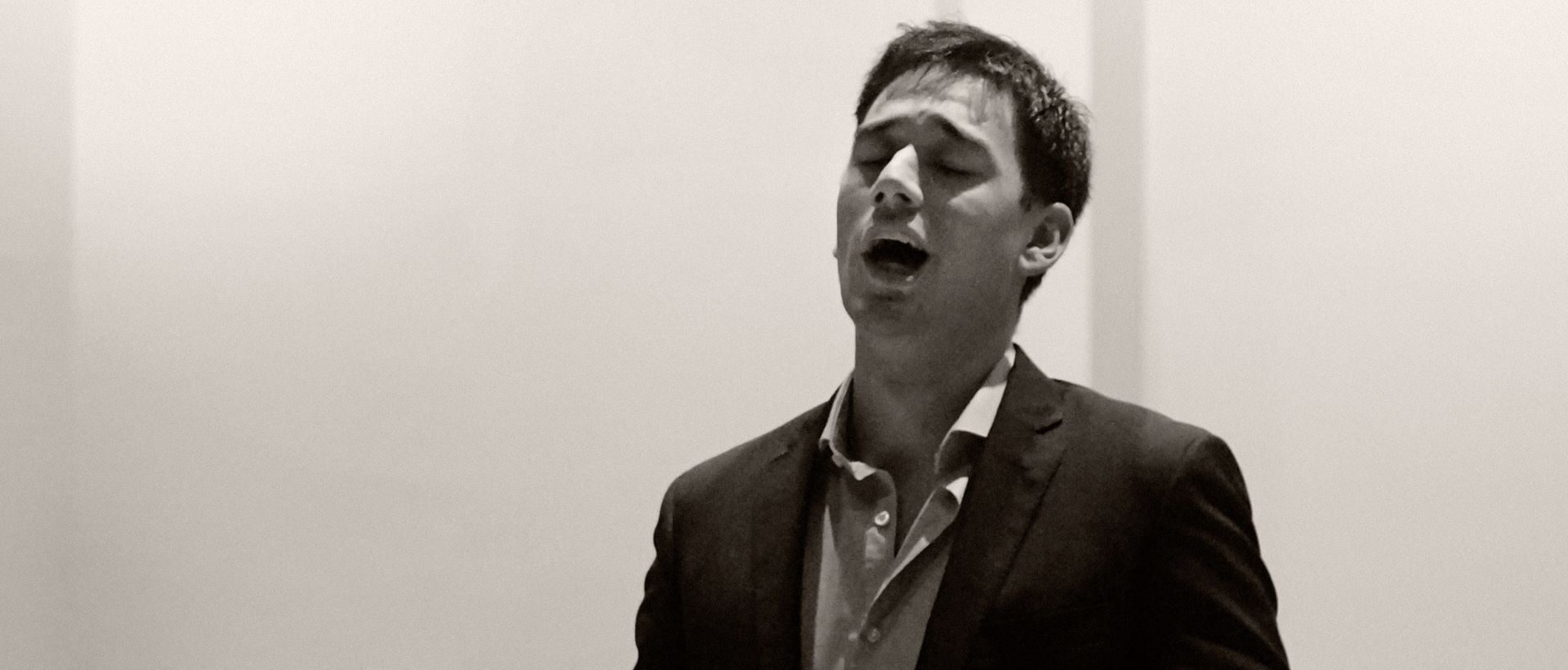By Koilon Editorial Team.
It is threatening. You want to take singing lessons, but you are puzzled. You have no clue what will happen when your lesson starts, and you have many questions. So, we asked maestro Jose Antonio Ruiz. He talked about what he does in his practice and how he solves some common problems.
What do you do in your singing lessons?
We spend about the first half of the lesson warming up. Sometimes it takes longer, sometimes less. It all depends on the needs of the student at the time. Occasionally I am very precise, you know, trying to get the student to understand one little thing and sometimes I want to listen to the song they prepared as soon as possible.
The warm-up should teach you something. Every exercise should have a purpose, should be sung with attention, intention and, if it’s possible, with emotion.
How does a vocal warm-up sound?
A vocal warm-up is a way to simplify things. Simple musical structures are used that repeat and are easy to remember. By the way, warming up does not mean just “warming up”. Yes, of course you end up activating your vocal system, but it only happens as a result of intentional and conscious work. It is sad but many teachers start their lessons with mechanical repetitions of the same exercises without giving the student any comments or a real purpose for using that exercise. And it gets worse, some students have been taught to warm up using recorded exercises or to use a sing-along YouTube video. Don’t do it, please! It is pointless. The only thing you are doing is repeating your mistakes over and over and may damage your vocal cords. The warm-up should teach you something. Every exercise should have a purpose, should be sung with attention, intention and, if it’s possible, with emotion.
What about that second part of the class?
After warming up, we work on the student’s repertoire. The point of lessons is that someone wants to sing, right? But what? That is when I ask the student if she or he has something already in mind and, if it’s appropriate, we work on it. Students want to sing songs they like and they should but sometimes they are too ambitious, so I suggest other options from the same genre. Some of my students are professionals that earn a living singing pop but I may have them learn an 18th century Italian aria, if I think they will learn something. They usually do because classical music is melody-based and its lines are carefully written avoiding leaps and enhancing effortless singing.
Is it important to know the classics?
You should know the rules before you break them and diving into classical music will give the student a good foundation. But as I said, it’s just a resource. I don’t force anyone into a genre they don’t like.
Many students imitate their favorite singers. The problem is that they are not always a good example to follow so the student ends up copying errors.
How is it helpful?
That music was originally meant to be sung and the voice was at the center, especially in cases like Bellini’s music, for instance. Most composers were worried about creating a beautiful melody and they would give it a pace in which the music could breathe and prepare the line to the high note, as if they were helping the singer. Another good reason for making students sing a classical piece is to help them correct some defects that come from speech or imitation. Many students imitate their favorite singers. The problem is that they are not always a good example to follow so the student ends up copying errors. Singing something they have never heard helps them to erase wrong ideas.
So, repertoire is a very open matter?
There are some limits – nature being the first one. Some pieces will always be out of our grasp, no matter how long we practice them. There’s a limit to the vocal range a person has, but that’s not all. There are baritones that can sing a good B flat and that’s the top note for many tenor roles. But can he do it night after night? The voice must feel comfortable, and it shouldn’t be jeopardized. On the other hand, we have the students that intend to become professional singers doing musicals or operas. In that case the teacher must help them to have a list of songs or arias they could use in an audition or recital. That means more rules because repertoire in musicals and operas is limited by many factors like voice type, age, and musical skills.
How is it to teach online?
Well, of course in person lessons will always be better but online lessons have a couple of pluses. Online lessons give students access to more options for teachers than the few ones they have locally, and scheduling is easier. However, online lessons sometimes create complications of the worst kind: technological. However, I have a few recommendations that might help you. Find a quiet room where you won’t be bothered. The fact that you can bring your phone everywhere doesn’t mean you can do lessons anywhere. Respect your lessons. You’re paying for them, and you should take the good they can give you, so make time for them. Use the best device you have and disable the sound filters in the app you’re using. For example, for Zoom leave on “enable original sound”. That one is important.
Jose Antonio Ruiz leads our Vocal Studio, he is an opera singer and teacher.
